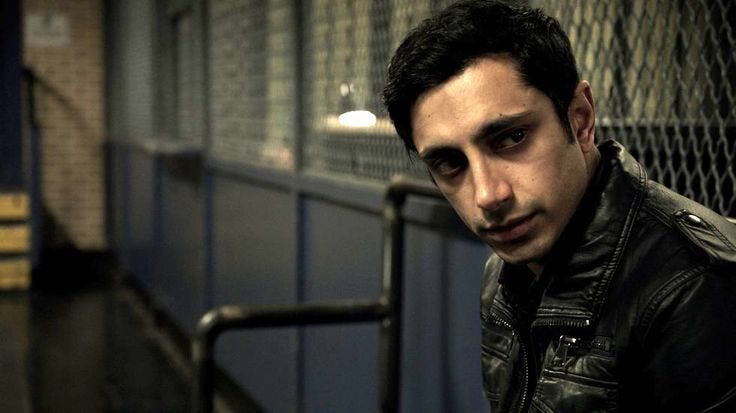“The Reluctant Fundamentalist” – A Journey Between Worlds
When I first picked up The Reluctant Fundamentalist by Mohsin Hamid, I felt it would reveal something within me, or perhaps clarify the person I was slowly becoming. The book didn’t just meet that expectation — it subtly unravelled parts of me I hadn’t yet confronted.
As Zia Mohyeddin recalls in From Some Lover to Some Beloved:
“I wonder sometimes, who am I? Because I feel at times, I am not who I am. I am a bundle of contradictions and confusion... I’m a bit of a loner.”
This statement, full of doubt and quiet estrangement, resonated deeply as I read through Changez’s monologue. Changez, a Princeton graduate turned financial analyst, finds himself slowly but surely estranged from the American world he once aspired to master. The novel is a one-sided conversation between him and an unnamed American, possibly an agent, whom he meets in a café in Lahore. The tension between the two — veiled behind courteous tones and polite exchanges — echoes the tension between East and West, between the colonized and the hegemon.
What stood out most to me was how Hamid allowed Changez to critique both Pakistan and America. He isn’t a blind patriot, nor a self-hating migrant. Rather, he embodies the duality that many of us from the postcolonial world carry — the ability to see through both lenses, painfully aware of the beauty and hypocrisy in each.
“I was a modern-day janissary, a servant of the American empire at a time when it was invading a country with a kinship to mine…”
Changez confronts the biases of his American guests with unnerving calm. The guest is clearly wary — perhaps of Changez’s beard, or the Pashtun-looking waiter. And Changez points out this fear:
“Do not be frightened by my beard: I am a lover of America.”
But the beard — much like skin colour or a name — becomes a loaded symbol. After 9/11, such features marked you as the "other," as dangerous, as unassimilated. Hamid uses this to show how identity can shift in the gaze of power.
Changez also reflects on how proximity to women, their visibility, and the dynamic of gender shifts when one grows up in a conservative society like Pakistan. He says:
“In a world where there is so little of what one seeks, one must draw close to what there is.”
“It is the effect of scarcity, one’s rules of propriety makes one thrist for the improper.”
This struck a chord with me. I’ve studied in co-education for five years. I like to believe I’ve grown used to female presence — even desensitized. But sometimes, unexpectedly, I too feel my nerves twitch. Scarcity creates its own shadows, its own yearnings, and even shame.
Hamid captures with startling clarity how America masks its imperial ambitions behind a rhetoric of neutrality and merit. Through Changez’s work at Underwood Samson—evaluating companies for efficiency and profitability—Hamid metaphorically exposes empire's extractive mindset.
“We did not focus on the fundamentals of business: we focused on the fundamentals of finance.”
This is not just capitalism — it’s surgical, sterile capitalism with no concern for people, history, or emotion. Changez’s moral unravelling begins when he realizes how his work is not neutral but destructive.
The Tragic Romance: Erica and Changez
The romance between Changez and Erica runs parallel to his ideological disillusionment. It reminded me of Norwegian Wood — specifically the haunting relationship between Toru and Naoko. Both Erica and Naoko are haunted by loss. They never recover. They project their yearning and grief onto their present partners, and despite the protagonist’s efforts, their decline is inevitable.
“She was disappearing into a powerful nostalgia... I felt I had become part of her fantasy.”
Erica, still in love with her dead boyfriend Chris, cannot accept Changez fully. She is both drawn to and resistant to him. Her illness is never pathologized in the Western clinical sense — Hamid uses her as a metaphor for a broken America, unable to accept new narratives, and clinging to its past.
Your comparison with Eastern philosophy is poignant. Western psychology often isolates the mind from the soul. But the emotional and metaphysical cannot be so easily split. Erica’s descent, like Naoko’s, reminds us that grief is not just mental — it is spiritual. It asks existential questions no DSM-5 can answer.
On Leaving, On Choosing Oneself
There is something profoundly painful about loving someone who is falling apart — and realizing that no matter how much of yourself you give, you cannot rescue them. What Changez teaches us, what Hamid subtly suggests, is that at some point, we must decide whether to save the other or ourselves.
“I lacked a stable core. I was not certain where I belonged—in New York, in Lahore, in both, in neither.”
And maybe that’s the human condition today — a hybrid, in-between, rootless yet searching. It’s also deeply South Asian — the awareness that history, migration, empire, religion, and identity intersect in us more violently than we admit.
Final Thoughts
The Reluctant Fundamentalist is not just about terrorism, or post-9/11 paranoia. It is about identity, displacement, masculinity, and the cost of belonging. Hamid doesn't give us clean answers — instead, he gives us a mirror. Changez might not be a hero, and America might not be a villain. But somewhere between them lies a quiet, unsettling truth: the world changed, and we changed with it — reluctantly.







The phenomenon of facial hair on men in America would make an interesting doctorate thesis. American men, back from WW II, continued the clean-shaven look well into the 21st Century. Yes, after 9/11, it was natural to suspect a man with a humungous beard to be hiding a bomb or weapon in it. Then, when the government decided that we want more Muslims in the USA, a surprising number of American men made Chuck Todd's face seem to be everywhere. Now that he has lost all credibility and most people were not born on 9/11, full beards are making a comeback. It's no longer political.